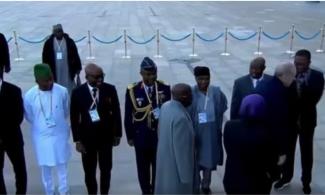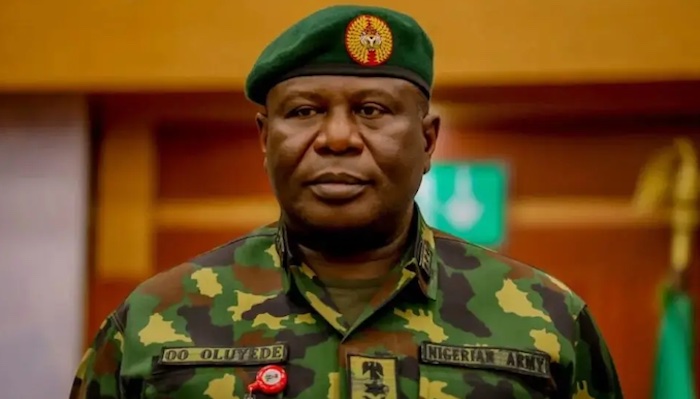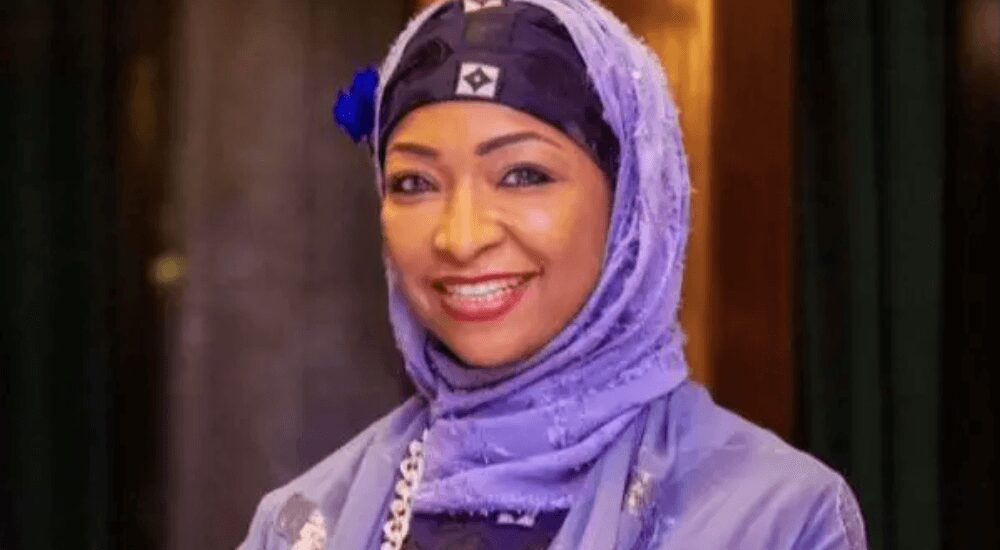President Bola Tinubu stumbled and fell on Tuesday during a welcome ceremony in Ankara, the capital of Turkey.
Headlines
Electricity Tariff: Revert to Old Price or Face the Consequences – TUC Tells FG

The Trade Union Congress (TUC) has reprimanded the Federal Government over the hike in electricity tariffs announced on Tuesday.
It described the decision as ‘wicked’ and ‘another betrayal of trust’ coming in the middle of ongoing negotiations by the FG and the organised labour on the November 1, 2020 hike.
The union asked the government to revert to the old price or face the consequences of its decision.
This was contained in a statement by the TUC President, Quadri Olaleye, and the Secretary-General, Musa Lawal, titled, ‘Electricity hike: Another betrayal of trust’.
The congress wondered “why this government espouses unfriendly policies that are capable of crippling the economy.”
It said many companies which could not pay the previous tariff hikes had either closed shop or relocated to neighbouring countries.
The TUC stated, “Does it mean there is no other way this government can creatively generate revenue? It has become obvious that the outrages from the organised labour and the masses and the series of negotiations we had with the government were just cosmetic and hypocritical.
“There is so much deceit and laziness in the system; there is hardly any promise made that they have followed through.
“Only yesterday (Monday), we read again that the Academic Staff Union of Universities is withdrawing its members because this same government has reneged on its promises reached a few days ago.
“How can the government go-ahead with increase in tariffs again when we have not resolved the one done earlier? This is preposterous, ridiculous and sheer wickedness.”
The congress noted that it had become the butt of jokes among Nigerians because it was reluctant to launch an offensive on account of the poor state of the economy.
It said, “The economy was struggling before the outbreak of the pandemic and we thought it wise not to worsen our situation. The sacrifice means nothing to these people, who forced us to tighten our belt while they loosened theirs.
“Darkness enhances criminal activities and now they have chosen to keep us in the darkness thinking their high fences will save them. We call on the government to be responsible for once. Nigerians will like to know what we gained from border closures. Insecurity did not stop, neither did it stop the smuggling of rice and others.”
The TUC said the government should not push the organised labour to the wall with its harsh policies.
It stated, “You don’t just churn out policies without weighing the pros and cons. How many people can afford to pay the last bill talk less of this recent one? The organised labour should not be pushed to the wall because it will actually do all no good. The government must revert to the old price or be willing to accept the outcome of this decision. This is a betrayal of trust and it is unfortunate.”
The Punch
Headlines
Tinubu Stumbles, Falls During Welcome Reception in Turkey

The incident occurred as he walked alongside Turkish President Recep Erdogan.
Tinubu appeared to have missed his step but was quickly assisted by officials, helping him regain his balance.
Tinubu had arrived at the Turkish presidential palace with a black limousine car.
Immediately after Tinubu alighted from the car, the military band played Nigeria’s national anthem, which was followed by the Turkish national anthem.
After the band’s rendition, there was a moment when the Turkish president used his hands to adjust Tinubu’s body to properly face the band.
Tinubu had departed Abuja for the state visit to Turkey on Monday, to strengthen the “existing cordial relations between the two countries and exploring further areas of cooperation in security, education, social development, innovation, and aviation”, according to a statement by presidential spokesperson, Bayo Onanuga.
Headlines
Military Finally Confirms Coup Plot Against Tinubu’s Govt

The Nigerian Armed Forces has said some officers will be arraigned before a military judicial panel to face trial over an alleged plot to overthrow the government.
The Director, Major General, Samaila Uba, said it is in accordance with the Armed Forces Act and other applicable service regulations.
Maj.-Gen Uba said: “It would be recalled that the Defence Headquarters issued a press statement in October 2025 regarding the arrest of sixteen officers over acts of indiscipline and breaches of service regulations. The Armed Forces of Nigeria (AFN) wishes to inform the general public that investigations into the matter have been concluded and the report forwarded to appropriate superior authority in line with extant regulations.
“The comprehensive investigation process, conducted in accordance with established military procedures, has carefully examined all circumstances surrounding the conduct of the affected personnel.
“The findings have identified a number of the officers with allegations of plotting to overthrow the government which is inconsistent with the ethics, values and professional standards required of members of the AFN.”
According to the statement, the measures being taken are purely disciplinary and part of ongoing institutional mechanisms to preserve order.
“Accordingly, those with cases to answer will be formally arraigned before appropriate military judicial panel to face trial in accordance with the Armed Forces Act and other applicable service regulations. This ensures accountability while upholding the principles of fairness and due process.
“The AFN reiterates that measures being taken are purely disciplinary and part of ongoing institutional mechanisms to preserve order, discipline and operational effectiveness within the ranks. The Armed Forces remain resolute in maintaining the highest standards of professionalism, loyalty and respect for constitutional authority,” it added.
The latest military action came more than three months after it announced on October 2025, that 16 officers had been arrested over alleged acts of indiscipline and violations of service regulations.
It explained that preliminary investigations revealed that the officers’ actions were tied to frustrations stemming from repeated failures in promotion examinations and concerns over stalled career progression.
In a statement issued by the Directorate of Defence Information, the conduct of the affected officers was described as falling short of the standards expected within the military.
It further noted that some of the officers were already under investigation for various offences and were either facing trial or awaiting court proceedings.
“The Armed Forces of Nigeria wishes to inform the public that a routine military exercise has resulted in the arrest of sixteen officers over issues of indiscipline and breach of service regulations. Investigations have revealed that their grievances stemmed largely from perceived career stagnation caused by repeated failure in promotion examinations, among other issues.
“The Armed Forces will not tolerate behaviour that undermines the integrity of the institution or threatens its constitutional role under democratic authority. The Armed Forces of Nigeria remains fully committed to its constitutional responsibilities and will remain professional at all times,” the statement read in part.
The planned military trial also came after months of speculation over an attempt to overthrow the Federal Government, linking it with the cancellation of the 65th Independence Anniversary parade.
The Defence Headquarters (DHQ) had earlier dismissed a report that claimed that 16 military officers, ranging from the rank of Captain to Brigadier General, were taken into custody by the Defence Intelligence Agency over alleged involvement in covert meetings to plan a coup against the government.
It had said that the parade was cancelled to allow President Bola Tinubu to attend a strategic bilateral meeting outside the country, and to enable members of the Armed Forces of Nigeria (AFN) to sustain momentum in the ongoing fight against terrorism, insurgency, and banditry.
“The Federal Government, the legislature, and the judiciary are working closely for the safety, development, and well-being of the nation. Democracy is forever.
“The Armed Forces of Nigeria remains firmly loyal to the Constitution and the Federal Government under the leadership of the Commander-in-Chief of the Armed Forces, President Bola Ahmed Tinubu, GCFR,” a statement signed by the Director of Defence Information, Brigadier General Tukur Gusau, in October had added.
But in the same month, soldiers from the Nigerian Army reportedly stormed the Abuja residence of former Bayelsa State governor, Timipre Sylva, over an alleged link to a coup plot.
According to multiple security sources, the operation was carried out by a special military team.
It was gathered that the raid followed intelligence reports linking the former Minister of State for Petroleum Resources to a series of secret meetings allegedly held with some of the detained military officers accused of plotting to overthrow the government.
A top security source familiar with the development had disclosed that the operation also extended to Sylva’s Bayelsa home, where his brother, identified as one Paga, was arrested.
“The Nigerian Army special team ransacked the home of Timipre Sylva, who is believed to have fled Nigeria.
“He is the South-South former governor frequently mentioned in the case. His brother, Paga, was picked up during the raid,” the source had revealed.
Consequently, the opposition African Democratic Congress (ADC) called on the Federal Government to immediately clarify the true nature of the alleged coup plot involving the arrested military officers.
In a statement signed by its National Publicity Secretary, Bolaji Abdullahi, it voiced worry over “conflicting signals” from government sources, noting that the Defence Headquarters publicly denied ever referencing a coup plot despite widespread media reports to the contrary.
“The ADC is particularly concerned that the federal government has not deemed it fit to make a categorical statement on this very serious matter, especially after the military authorities repeatedly denied that there was such a threat to the government.
“By keeping quiet, the government has deliberately allowed the coup story to fester for whatever reason,” the ADC had said.
Headlines
2027: Minister Musawa Warns APC Against Substituting Shettima

The Minister of Culture, Tourism, and Creative Economy, Hannatu Musawa, has cautioned the ruling All Progressives Congress (APC) against altering the current leadership structure, which has a Northern Muslim representation on the presidential ticket.
She further warned that any attempt to alter the current configuration could be a recipe for electoral disaster in the 2027 general election.
Speaking on the Mic On Show with Seun Okinbaloye, Musawa addressed the swirling rumors that the ruling party might pivot away from the Muslim-Muslim ticket that successfully brought President Bola Tinubu to power in 2023. She argued that keeping Vice President Kashim Shettima—or at the very least, a Northern Muslim—is not just a matter of tradition, but a strategic necessity.
Musawa highlighted that the ethnic and religious composition of the ticket is a deciding factor for millions of voters in the region. According to her, the political identity of the North is non-negotiable when it comes to the national stage.
“If there is no Hausa, Fulani or Kanuri Muslim on that ticket, it creates a hurdle. That is the reality of the way people think,” Musawa said.
She elaborated on the sophisticated nature of the Northern electorate, noting that for many, voting is a primary source of civic agency.
The “Core North” Powerhouse, according to her, are Katsina, Kano, Kaduna, Kebbi, Jigawa, Zamfara and Sokoto states.
Regarding these key states, she remarked: “The core North… understands politics at a very deep level. Politics there is a way of life. People wait every four years to line up and vote because that is where they feel they have influence.”
The minister dismissed the idea that the APC could simply swap out its current vice-presidential slot for a non-Northern Muslim without facing a massive backlash at the polls. She labeled those pushing for such a change as out of touch with the grassroots reality of the region.
“I think if we toy with changing the construct of what we have now, it is a problem. People who suggest otherwise may not fully understand how politics works in the North,” she warned.
Turning her attention to the brewing alliances within the opposition, Musawa remained unimpressed. She characterized the current efforts to unseat the Tinubu-Shettima administration as disorganized and ego-driven.
“You have an opposition that is overcrowded. Every single member is vying for the same spot, and that alone creates a recipe for political failure,” Musawa stated.
Despite the activity from rival camps, her confidence in the APC’s staying power remains unshaken.
On the threat level, she said: “We are not taking anybody lightly. But as the opposition is emerging now, I do not see how they can unseat President Tinubu and Vice President Shettima.”
On democratic health, Musawa insisted that “It is good for democracy to have opposition. Nobody wants a one-party state. But we are confident in our political direction.”
Ultimately, Musawa’s stance suggests that while the APC welcomes a challenge, they have no intention of fixing what they believe isn’t broken—especially when it comes to the delicate balance of Northern representation.






